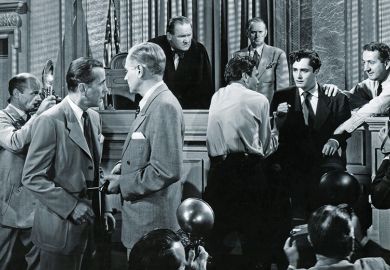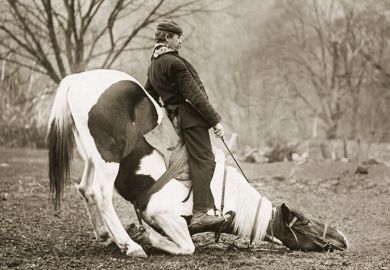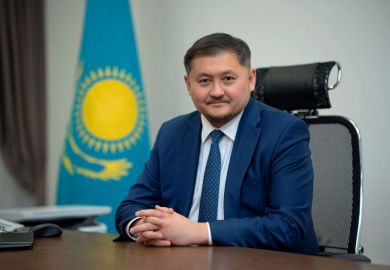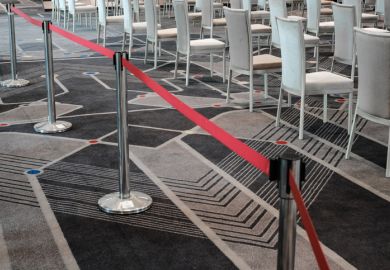Embarking on your first term as a graduate teaching assistant can be daunting; many first-time teaching assistants receive little or no training and support and also must not be sidetracked from their PhD studies. Here, three graduate teaching assistants explain what they wished they had known before starting their university teaching careers.
Manage competing roles
Balancing the competing roles of instructor, student and mentor is often not taught to new teachers. Doing so, however, is essential to satisfying your students’ needs while also making progress with your own studies.
You will need to master three essential skills: organisation, prioritisation and refraining from procrastination. First, organise and prioritise your own coursework assignments according to the due date and set a timeline to start and finish each. Then, stick to your schedule.
Once your coursework schedule is set, you need to think about your upcoming duties as an instructor and mentor. For your teaching duties, review the syllabus to see when major assignments are due and carve out some time so that you are available to students in the weeks leading up to the assignment. While you may have just started in the role, students will probably seek your advice on internships, how to write cover letters and translate skills gathered during university to job applications. However, try to prioritise grading assignments where deadlines are tight.
It is also helpful to set aside specific hours to answer emails as this duty can consume a lot of time – often, in the case of hourly paid staff, unpaid hours.
Balance preparation and flexibility
It is understandable to be apprehensive about public speaking, but being a teaching assistant requires one to directly confront that fear. In fact, you need to do more than simply deliver a script: teaching assistants have to learn to think on their feet.
For new teaching assistants, a good strategy is to prepare as much as possible by crafting your lesson plans for each section. For many subjects, such as our own, political science, one can combine course materials with contemporary issues with which most students are familiar to create small group activities that generate lively group discussions.
Despite your meticulous preparation, however, these activities don’t always go as planned because students do not understand the activity or have not done the work assigned ahead of class, or the activity simply does not generate a lot of discussion. You will need to have a contingency plan: perhaps turn the activity not completed by students prior to class into a group activity.
Above all, remember the learning outcome that you hope to achieve. If plan A doesn’t work,maybe you can salvage the lesson by talking about your own supplementary slides or asking different questions if the intended activity does not elicit group discussion.
Get students invested
Often, political science theories and topics, much like those in other social sciences, can seem intangible to students.
Making concepts relatable and using active learning can both be useful techniques to get students invested in the subject. For instance, you could link subject material to current events, such as using recent headlines to illustrate theories or clips of campaign speeches to understand foreign policy concepts. One colleague polls students on issues that are important to them throughout the semester and finds ways to incorporate illustrations from those subjects in her lectures.
Active learning, such as simulations and games, puts students in the position of making decisions along theoretical or conceptual lines. In other words, students become “lab rats” in their own experiments. Recent research indicates that active learning techniques are almost always more effective than lecture-based seminars, where students are “talked at” by professors or other students.
It doesn’t need to be too complex: there are gradations of active learning. Something as simple as a guided hypothetical example or a short role-playing game can be effective. Short games that can help students define and operationalise concepts in political science and implement a case comparison or quantitative methods have been shown to be highly effective.
Each individual will develop their own method of instruction and this can take time. However, the skills outlined here will be vital as first-time tutors work towards their own distinctive style of teaching.
Nakissa Jahanbani, Charmaine Willis and Donnett Lee are doctoral students in political science at the State University of New York Albany. Their paper “What we wish we knew: reflections of brand-new teaching assistants” was recently published in the Journal of Political Science Education.
POSTSCRIPT:
Print headline: Link lessons to life and learn to think on your feet
Register to continue
Why register?
- Registration is free and only takes a moment
- Once registered, you can read 3 articles a month
- Sign up for our newsletter
Subscribe
Or subscribe for unlimited access to:
- Unlimited access to news, views, insights & reviews
- Digital editions
- Digital access to THE’s university and college rankings analysis
Already registered or a current subscriber?








